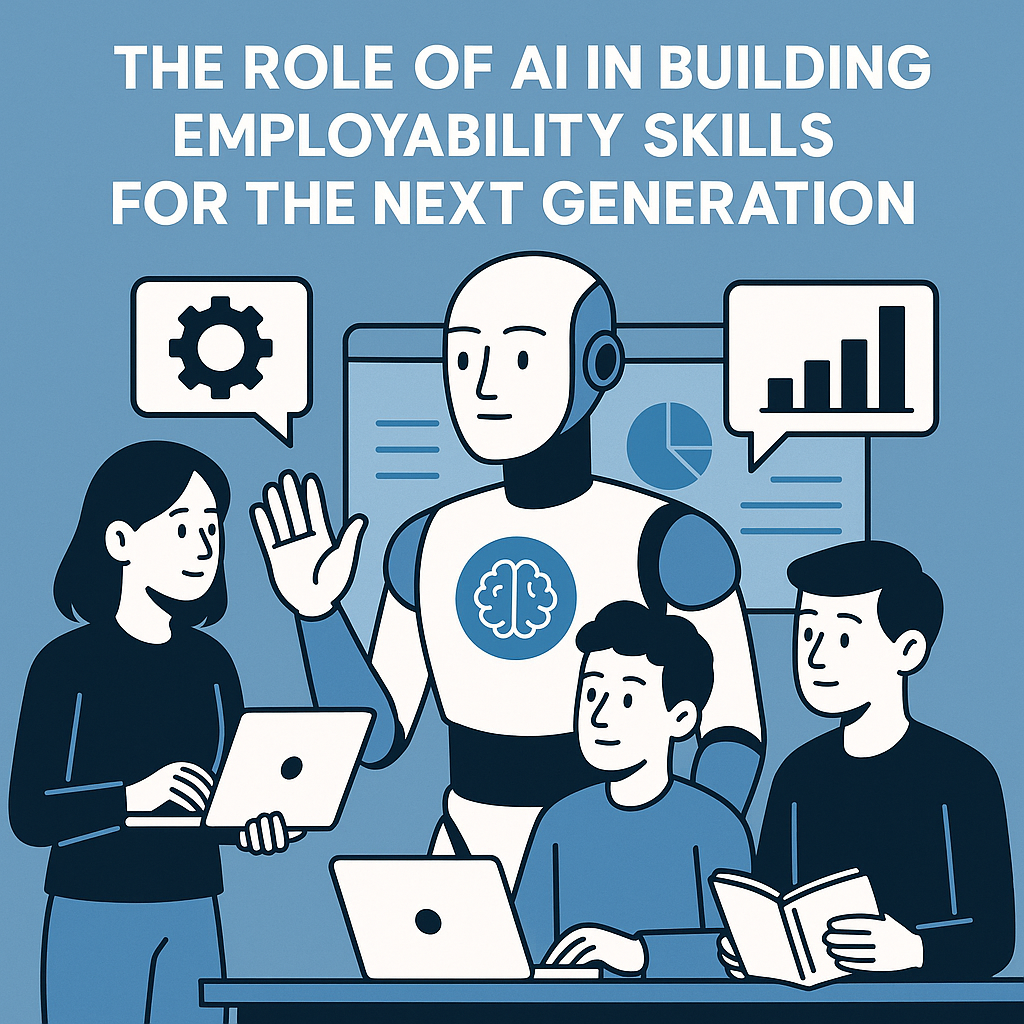
The job market is transforming faster than ever before. The days when a college degree alone could guarantee a stable career are long gone. In this new era, employability is defined not just by what you know, but by how quickly you can learn, adapt, and apply new skills. And right at the center of this transformation stands Artificial Intelligence (AI) — not as a replacement for human talent, but as a partner in building it.
AI: The New Skill Catalyst
Artificial Intelligence isn’t just changing the way industries operate; it’s reshaping how we learn and prepare for them. From personalized learning platforms to career guidance systems, AI is enabling a shift from generic education to skills-first learning.
Imagine a student who struggles with public speaking. With AI-based communication coaches that analyze tone, speech clarity, and confidence levels, they can now practice in a safe environment and receive instant, constructive feedback. This isn’t futuristic — it’s already happening, and it’s changing how people grow professionally.
Personalized Learning Journeys
One of the biggest problems in traditional education is the “one-size-fits-all” approach. AI solves this by tailoring learning paths based on each learner’s strengths, weaknesses, and goals.
If a student excels in analytical thinking but struggles with teamwork, an AI platform can recommend collaborative projects or virtual simulations to help them strengthen interpersonal skills. By doing so, AI ensures that students don’t just learn — they evolve into well-rounded professionals.
Preparing for Jobs That Don’t Exist Yet
Here’s the exciting (and slightly scary) part — many of the jobs that will exist in the next decade haven’t even been invented yet. Roles like AI ethicist, digital twin engineer, and data storyteller are just the beginning.
AI is helping bridge this uncertainty by training students to learn how to learn. Through adaptive assessments, virtual internships, and real-world problem simulations, learners gain practical exposure that goes beyond textbooks. They develop agility, creativity, and problem-solving — the holy trinity of employability in the AI era.
Soft Skills Meet Smart Tech
Employers today are looking for more than technical know-how. Emotional intelligence, adaptability, collaboration, and critical thinking top their wish lists. Interestingly, AI is playing a huge role in nurturing these so-called “human” skills.
For example, AI-driven behavioral simulations can help students practice decision-making in complex workplace scenarios — like handling a conflict, leading a team under pressure, or navigating ethical dilemmas. By turning soft skills into measurable, improvable areas, AI ensures that students enter the workforce ready to lead, not just follow.
Guiding Career Choices with Data
Career counseling has often relied on generic advice or limited exposure. AI-powered career guidance systems now use data from millions of job trends, market analyses, and individual profiles to provide realistic, personalized career recommendations.
Instead of guessing what career might “fit,” students can now explore paths aligned with both their interests and market demand. This data-driven approach helps reduce unemployment gaps and boosts long-term career satisfaction.
A Collaboration, Not a Competition
There’s a common fear that AI will replace human jobs. In truth, AI will replace tasks, not people. The real challenge is to learn how to work with AI, not against it. The next generation must see AI as a co-worker — one that handles repetitive chores, analyzes complex data, and frees humans to focus on creativity, empathy, and strategy.
By integrating AI tools into learning environments today, we’re not just preparing students for jobs — we’re preparing them for an AI-augmented world where human potential is multiplied by machine intelligence.
Conclusion: The Future is Human — with AI by Our Side
AI isn’t here to outsmart us; it’s here to uplift us. By embedding AI into education and training systems, we can create a generation that’s not just employable, but adaptable, thoughtful, and future-ready.
The next generation’s greatest skill won’t be coding, designing, or marketing — it will be the ability to work intelligently with technology to solve human problems. And that’s where AI’s true role lies: not in replacing talent, but in shaping it.

